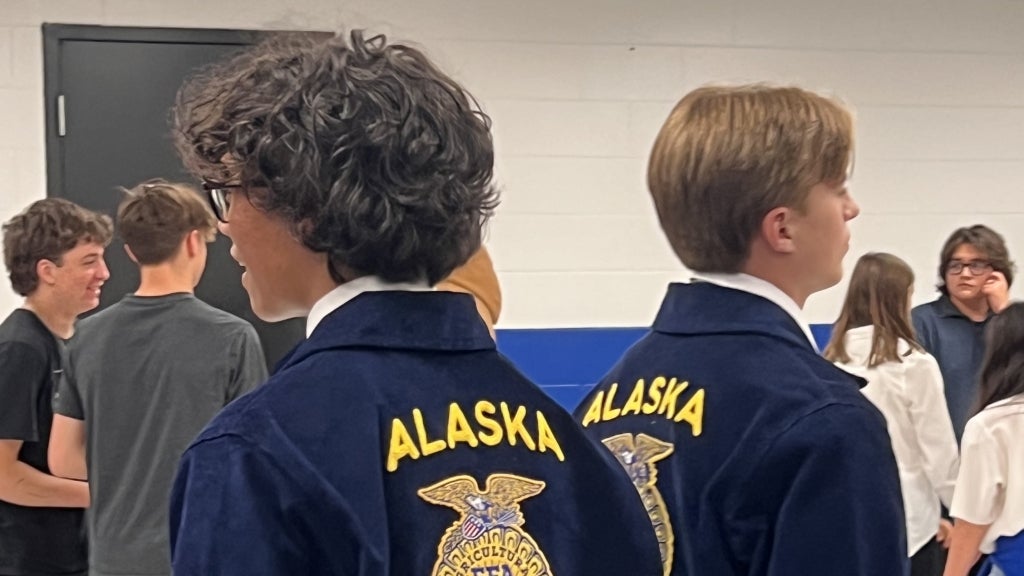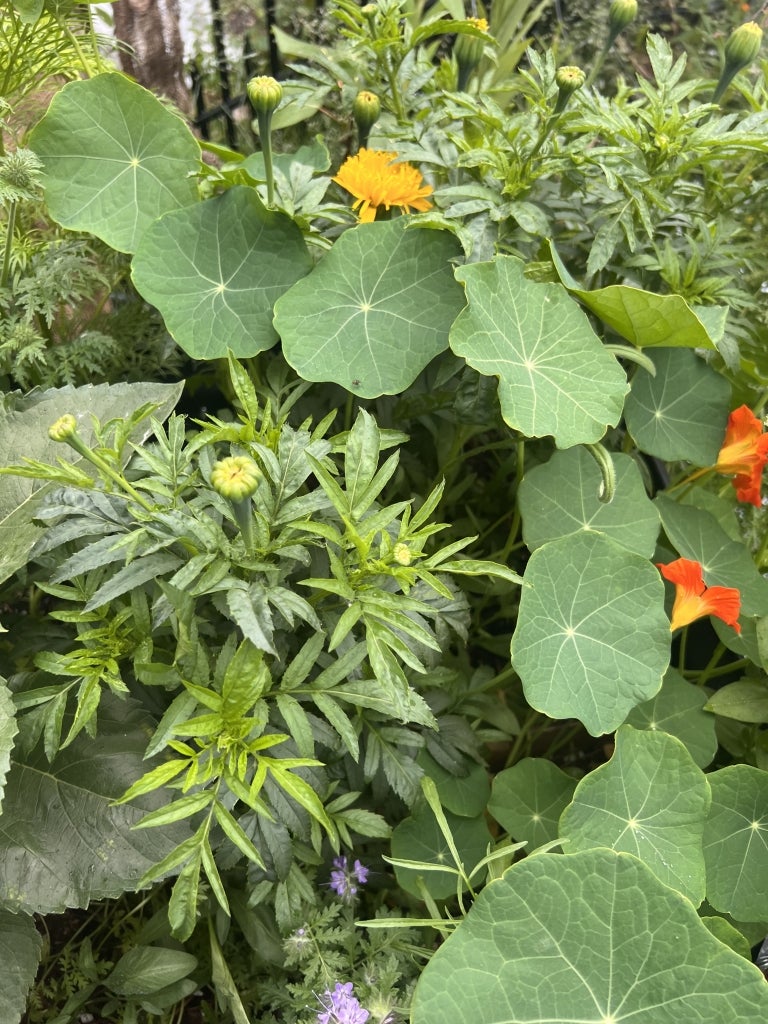
Bettye Davis East FFA members participate in the South-Central District Leadership Conference held in Palmer, Alaska, on Sept. 24, 2024.
Being innovative in problem-based learning is an integral part of the Bettye Davis East FFA Chapter in Anchorage, Alaska. This chapter began in 2023 and is part of Bettye Davis East Anchorage High School, which is a confluence of cultures.
“Many students come from communities where agriculture sustainability and natural resource management is embedded within their communities,” says Maureen Cronin, co-advisor of the Bettye Davis East FFA Chapter.
In addition to Cronin, Bettye Davis East FFA is led by advisors Germaine Thomas, a marine science and oceanography teacher, and Adam Wood, a metal fabrication and industrial technology teacher. Edna Maxwell, an environmental sciences teacher, also coordinates the school’s spring agribusiness plant sales, while Kelly Ballantyne, a horticulture teacher at King Tech High School, offers a dual campus experience through his Farm & Food Industries of Alaska course.
Bettye Davis East FFA members have access to a diverse range of courses that cover natural resources, agriculture and food systems.
- Environmental Science: This course allows students to explore the interactions between humans and the environment, emphasizing the importance of sustainability.
- Marine Science: Students delve into the study of marine ecosystems and the significance of regional waterways and mariculture.
- Metal Fabrication (Welding): This practical course equips students with essential skills in metalworking, which can be applied in various agriculture and engineering-focused settings.
- Pre-Veterinary Science: Providing insights into animal care and management, this course is designed for students interested in pursuing careers in veterinary medicine or animal husbandry.
A Hands-On Approach
As part of their sustainable food systems studies within the environmental and public health pathway, FFA members also engage in hands-on learning by tending to innovative gardening practices with hydroponic systems, mini greenhouses and a group of raised beds on the school grounds. In the process, the chapter receives guidance from the University of Alaska Fairbanks Cooperative Extension Service and the Intertribal Agriculture Council in Alaska.
Starting seeds indoors and using raised beds enables students to plant crops earlier in the season and, therefore, overcome challenges posed by Alaska’s short growing season and the school’s urban location. Additionally, learning about regenerative agriculture practices like crop rotation, interplanting and composting are instrumental in helping enhance crop production and instill a strong sense of environmental stewardship among students.

The Bettye Davis East FFA Chapter grows many different types of plants, including flowers, fruits, vegetables, herbs and more.
Through innovation and dedication, and by making the most of the natural resources and land available to them, these members showcase how grit and determination can be used to overcome their state’s climate challenges.
Dive Deeper
Alaskan agriculture is pretty awesome, and it might be pretty different from where you’re from. Read about what farming and FFA are like in The Last Frontier.











